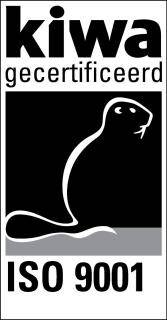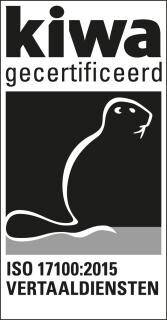
Successful international business: here’s how to do it
Multilingual websites and localised brochures are important, but don’t guarantee international business success. Understanding a country’s culture and identity through language is one thing, but the way you deal with international customers and partners is another. The Netherlands is a small country with a challenging language so more often than not, we're the ones who are expected to adapt. In this chapter, we provide you with some tips to win over your business contacts in Germany, Spain and Italy.
Germany
1. ‘Sei pünktlich’ (be on time)
Germans are renowned for their organisation and planning. They like to plan every project they undertake, as it provides them with a sense of security. That’s why they dislike people who miss appointments, including contacts who arrive fifteen minutes late without prior notice. Not only does it leave a bad impression, it can also jeopardise any future deals. So don’t lose track of time!
2. ‘Sei gründlich’ (do your homework)
The proverbial German ‘Gründlichkeit’ is an extension of the aforementioned ‘Pünktlichkeit’. This also relates to the values of care and professionalism, intrinsic to German culture. Make sure to prepare thoroughly for your appointment and underline your expertise by providing facts and examples. The same applies to your marketing material, which must look perfect and, content wise, leave a professional impression. If this isn’t the case, the potential prospect may soon feel that they're not being taken seriously. And that could lose you a good customer, or a great project. To avoid any unpleasant surprises, use a German native speaker for your communication. Because, once you’ve won the trust of a German, you won’t lose it any time soon.
3. Keep it formal: ‘Siezen’ and not ‘Duzen’
Although things appear to be slowly changing, German business culture is still quite formal. Hierarchy plays a more important role and the process of decision making generally takes longer. Keep this in mind when approaching business contacts, especially if it's the first time. Always address your German business partner with ‘Sie’ and use titles and surnames. For example, ‘Herr Müller', ‘Frau Merkel’ or ‘Herr Professor Doktor Schmidt'. Formal language use ensures that you make a good first impression. If a relationship is well established, your business contact will inform you if you can switch to ‘Du'. Wait for them to take the initiative and never propose to use ‘duzen’ yourself!
4. Paper based communication
In contrast to the Netherlands, people in Germany still attach a lot of value to methods of paper based communication. Whereas Dutch companies are increasingly focused on online marketing, SEO, eBooks, social media and blogging, German marketers think slightly differently. Germans think and act in a more traditional manner and are more immune to the influence of American trends. Yet Germans still appreciate the Dutch abilities to think unconventionally and out of the box. The trick here is to find the right balance. So make sure that you always have a paper brochure with you, and also show your German business contact your innovative communication based abilities.
Spain and Italy
1. Don’t do business in August
In Spain and Italy, August is both a month for holidays and a month for celebration. Catholic holidays such as Assumption (15 August), are widely celebrated and processions take place in many villages. In Italy, Ferragosto (feriae Augusti = Augusto's rest), is also one of the most important holidays. Every Italian takes a a traditional getaway, heading to the sea or the mountains. Most offices, factories, companies and schools are closed. Keep this in mind when doing business with these countries.
2. Make it personal
Italians and Spaniards like to get to know someone personally before they do business. It’s not enough to simply make a phone call or send an email. For a first meeting, a long business lunch or dinner is a great way to get to know someone. It’s important to not talk about work straightaway. Firstly, say something about yourself, but avoid discussing sensitive subjects like religion or politics. Business subjects are usually only discussed over coffee. Make sure you dress appropriately for the occasion, and be generous with your compliments, for example in regards to food. This will create a lot of goodwill.
3. Be patient
Spain is a traditional country that requires time to adapt. Whereas we embrace every innovation with complete opportunism, Spaniards prefer to be patient, to wait and see. Trust needs to be earned. This risk averse nature means that doing business with Spaniards requires a lot of patience and persuasiveness. Again, a good personal relationship is essential to this process. Be aware of social, cultural and political differences between the different Spanish regions, and respect local customs and traditions. This way, you will build a relationship built on trust, which will lead to successful business opportunities in Spain.
4. Make yourself understood
Although the amount of multilingual Spaniards and Italians is increasing, less than 20% of highly educated people in the two countries speak English. But even if you do manage to find an English speaking business partner, it’s an advantage if you can address them in their own language. This further contributes to that all important relationship built on trust. Not only does it earn you the respect of your business partner, but they won’t feel so uncomfortable if you fail to understand their use of English. If you do a lot of business in these countries, it might be a good idea to take a Spanish or Italian language course. This will almost certainly lead to a double return on your investment.
5. Confirm your appointment
The preconception that Italians and Spaniards aren’t very good at making appointments is untrue. In fact it’s quite the opposite: they like to plan ahead. In Spain for example, an appointment is only certain when it’s confirmed well in advance. Something that is true is that an agreed time is rather flexible. If you’ve made an appointment for 4 pm, you can expect to meet your business partner anywhere between 3.45 pm and 4.20 pm. So make sure you are well on time and don’t get annoyed if the person you have the appointment with is late.
6. Cut a good figure
In Italian culture everything revolves around ‘la bella figura', meaning to dress well. Including when doing business. So put on a neat, fitted outfit for your business appointment. This will show your Italian business partner that the appointment is important to you. Don’t come to negotiations dressed in jeans and a baggy jumper, as this will guarantee failure.
As you can see, doing business in countries such as Germany, Italy and Spain is quite different to doing business in the Netherlands. Germans are more formal in their dealings and communication, while Italians and Spaniards attach greater importance to a personal relationship. In this chapter, we provided you with some tips on what you should and shouldn’t do during business meetings. We’ve been doing business with other countries for many years and, as communication specialists, we know exactly what you need to achieve international success. Of course, we’re happy to share this knowledge with you!
Want to know more about how to successfully do international business? Then get in touch with the translation and localisation specialists at AgroLingua!
Back to blogs





